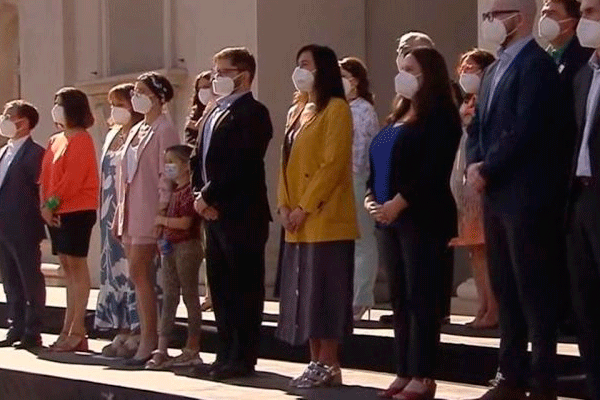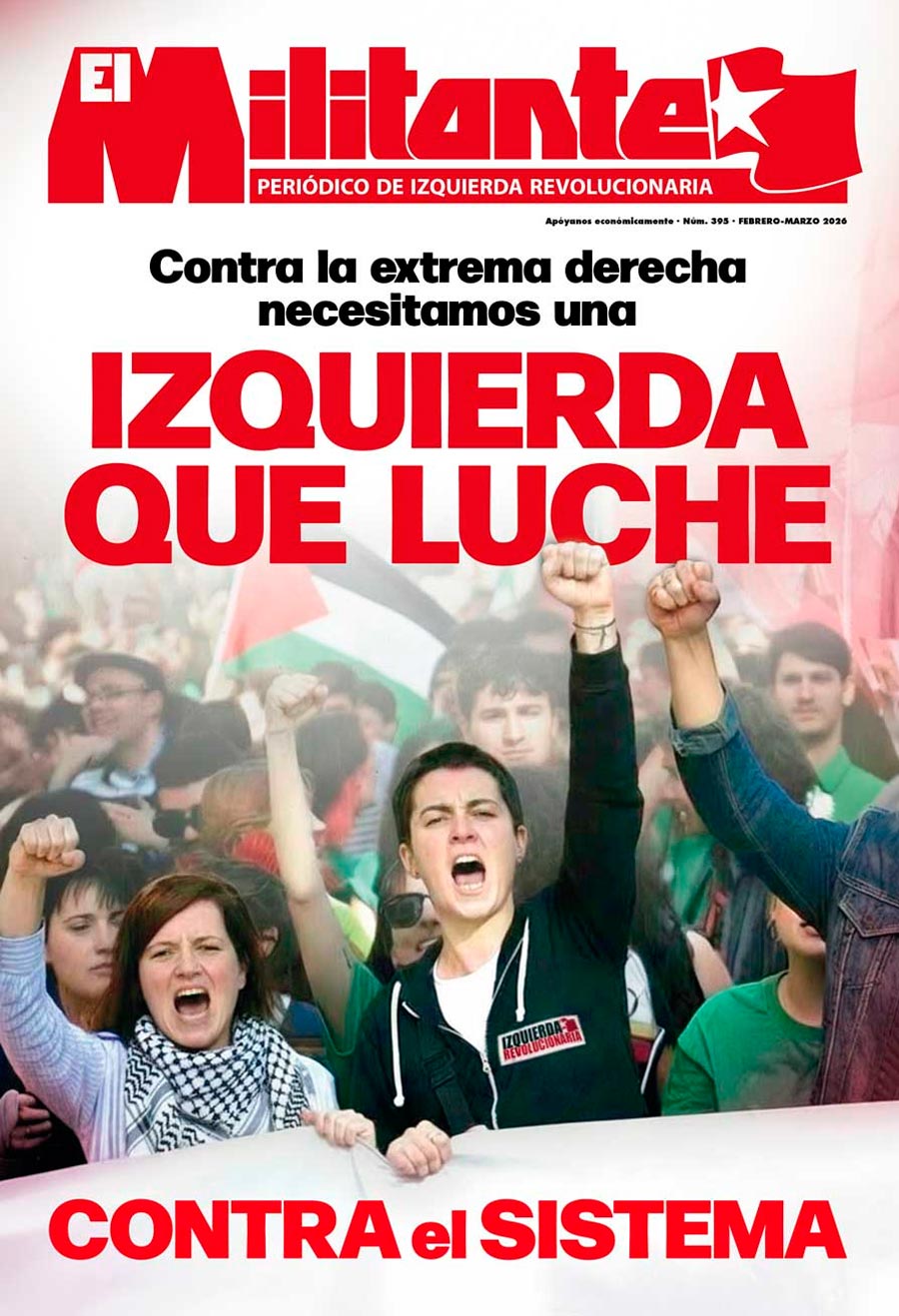On December 19, Gabriel Boric, candidate of the left-wing coalition Approve Dignity, formed by the Broad Front (FA) and the Communist Party of Chile (PCCh), won the presidential seat of Chile with 4,620,671 votes (55,87%). The Chilean working class and youth have once again staged a spectacular mobilization at the polls, leading to the best result obtained by any president in the country's history.
Boric prevailed by dealing a resounding defeat to the far-right candidate José Antonio Kast, who got 3,649,647 votes (44.13%). With 55,65% participation, the highest since voting was made optional and not compulsory, the left candidate won by 11.7 points and almost a million ballots. He got the most votes in 11 of the 16 regions and on 9 of the 11 most populated cities. In six of them, he got over 60% of the votes. These results show the tremendous strength of the working-class and popular mobilization.
A hard blow to the ruling class
People have heard the results with a burst of euphoria. As soon as the triumph was known, thousands of people filled the streets of Santiago. The feeling of emotion and self-confidence they showed was similar to the one after the historic victory of Salvador Allende and the Popular Unity in 1970. Like then, this has not been just another election. It was a crucial election day after the outbreak of the revolutionary process in October 2019, and the ruling class faced it as a ballot against "communism."
Throughout the campaign, Kast was appealing to the "silent majority" to restore "order and stability" and to end the "chaos" and "radicalism" that "have taken over the country" since the popular uprising two years ago. Despite attempts top disguise himself in sheep's clothing during the second round, the intentions and programme of this far-right candidate and of the ruling class sectors which supporteed him could not be clearer: to intensify the repression against workers' and social struggles by giving carte blanche for the executive branch and police commanders to carry out wiretaps, arrests and operations against any activity they considered terrorist or dangerous; militarize the territories of the Mapuche people to put an end to land seizures and protests against looting by landowners, multinationals and forestry companies, by using repression; apply racist legislation against immigration and carry out massive deportations and, above all, shield the benefits of the bosses and the oligarchy, ensuring the laws that precarise and extort money from the working class and the privatization of essential public services.
Millions of young men and women workers have understood what was at stake and mobilized like a single fist to strike at the counterrevolution. The exceptionally favorable correlation of forces to carry out a policy that breaks with capitalist logic and promotes profound and radical transformations is unquestionable. These results demolish the arguments of the skeptics and the theorists of the "permanent reflux"; of those cowards who spend all day justifying resignation and surrender.
The ruling class has also understood the meaning of this battle and the strength shown by the masses. They are not satisfied with Boric's speeches calling for calm and committing to seek the dialogue. In a few hours, the Stock Market fell 8%, the dollar's price rose, and the threat of capital and investment flight if the government approves any measure that questions its interests worsened.
Class consciousness and determination in struggle
The results of the 19th of December are a slap in the face to those petty-bourgeois social-democratic leaders and intellectuals that sat in their comfortable university chairs or parliamentary seats, pontificating the shift to the right of the Chilean working class after the first round.
Kast was defeated even in those areas held up as an example of the supposed turn to the right. Boric obtained 60% of the votes in the mining city of Antofagasta, where the high abstention rate and the aim to punish the PS gave the triumph to the right-wing Parisi in the first round. He has also won in 4 of the five mining regions in the north, where the anti-immigration campaign of the far-right was more intense.
The key to these elections was not to win the supposed vote of the center but to recover the mobilization in the streets of those millions of workers and young people who led the insurrection of October 2019, suffered the repression of the murderous Piñera regime and massively supported the left in the Plebiscite and the constituent elections. Many of these workers -disappointed by the continuous speeches asking for moderation and patience or the debates in the Constituent Assembly dominated by the left without concrete answers to their demands- did not vote in the first round of the presidential elections. Those sectors at the decisive moment have once again mobilized en masse to defeat the extreme right.
Participation in poor communes (municipalities) rose again from 35-40% to 50-55%. In Puente Alto, the most populous commune in the country, in the south of the Metropolitan District of Santiago, Boric got 70% support versus Kast's 29%. In Greater Santiago, which concentrates a third of the Chilean population (6,254,314 inhabitants), Boric received 60%, with percentages that in the case of the most proletarian communes reach 73, 74, and 75%. In Valparaíso, an industrial and port city with a great fighting tradition, his support exceeded 65%.
These results confirm that Kast did not win in the first round because of the fear that the left would go too far and put forward too radical proposals, as the leaders of the Socialist Party (PS) and other bourgeois and petty-bourgeois analysts self-interestedly claimed. Quite the opposite.
Boric gave up many claims that mobilized the masses during the 2019 insurrection, signed the agreement for social peace, and accepted the rules of capitalism, which prevented him from connecting with hundreds of thousands in the first round. But the possibility that a declared Pinochetist like Kast could reach the presidency has acted as the whip of the counterrevolution, encouraging and spurring the masses.
The media have been crammed with analyses attributing Boric's victory to his "moderation" and the support of the rotten leaders of the PS or the Christian Democrats (DC). Nothing is further from the truth! Boric's support grew the most in the working-class neighborhoods of Greater Santiago and in the mining regions of the north, precisely where the PS and its New Social Pact coalition with the DC and other bourgeois parties got the worst results in the first round.
A new stage in the class struggle
The impressive response of the oppressed people has disrupted the plans of a majority sector of the Chilean oligarchy. They, fearing that the constitutional convention and the role of the leaders of the left would no longer contain the popular mobilization, opted for Kast to gather and mobilize the most desperate and radicalized layers of the petty bourgeoisie and to go on the offensive against the revolution.
The ruling class must keep leaning on their control of Parliament and the one third that allows them to block the convention in charge of drawing up the new constitution with the votes of the Piñerista right, the bourgeois parties such as the Liberal Party and the DC, and the PS leaders themselves. At least for now.
The bourgeoisie has no choice but to maneuver to impose its agenda through actions. They are already pressing to include figures from the PS in Boric's government and ensure that the substantive decisions of the new Executive do not question the current power structure. In any case, it is inevitable that the millions who have starred in this turnaround at the polls give Boric a margin of confidence and expect results. But the bottom line is that the elections have shown the power of the struggling masses, given them more confidence in their strength, and made them more aware of their enormous power in the battle against reaction. Should Boric renounce to applying transformative policies and face against economic and military forces, and keep seeking an impossible consensus, he will soon find a response from his social base.
Raise a revolutionary alternative to transform society
Although the reaction has lost this first battle, it is far from being definitively crushed. With Kast or other, the bourgeoisie will not hesitate to take advantage of the erosion of the leftist government, and they will mobilize their supporters at first chance. Using racial prejudice and criminalizing immigrants and the Mapuche people, Kast tries to group his counterrevolutionary base and divides the masses.
In four of the five regions and in the only two large cities where Kast won, his brutal campaign of attacks against the Mapuche had decisive weight. But the conditions to unify the struggle for the full recognition of their democratic-national rights, lands, culture, and language with that of the rest of the oppressed are more favorable today than ever.
The millions who have voted for Boric expect him to withdraw the soldiers sent for Piñera to four provinces with a Mapuche presence and decree the immediate amnesty of the hundreds of political prisoners who remain imprisoned. Linked to this is the demand to purge and punish police and military leaders and dissolve the Carabineros (local police) responsible for the bloody repression against social struggles.
These democratic measures must go hand in hand with a broad and ambitious program to solve the problems of a population that cannot wait. The lessons of the Popular Unity in 1970-73 are very present in the current situation. Boric and the Communist Party have an enormous historical responsibility. They can settle for managing a system in crisis but may be swept away by the pressure of the capitalists and enter the realm of self-justification, blaming their mistakes on the same working class that has led them to the presidency, as we have seen so many times.
There is another option, though. A path which is not easy but is the only one to fulfill the mandate of the people: rely on the strength of those millions of votes and mobilize the workers and youth to carry out a policy of socialist vigorous measures, starting with nationalizing the banks, the big business, and the land under the direct and democratic management of the workers. Thus, the economy would meet social needs: a public pension system to guarantee a decent retirement, a shock-and-awe plan against the pandemic, the development of a free public health system, and quality, free, and universal education for the entire population could be possible.
Placing the extraordinary resources of the nation in the hands of the people would let them carry out a real fight against poverty and precariousness and for decent wages and working conditions. Also, a genuine agrarian reform that returns the Mapuche and other native peoples their lands would guarantee them proper living conditions, end their social exclusion, and recognize their democratic-national rights, language, and cultural identity.
The pressure from the bourgeoisie for Boric to do the same as the previous PS governments will be ferocious. The task of the combative left is to participate in the front line in the fight against the right and extreme right, raising a revolutionary alternative, breaking with the stage-oriented conceptions that put the wrongly named constituent process before the struggle for the socialist transformation of society. Boric's victory is the fruit of the revolutionary fight of millions. But this new phase can only end in decisive victory if real power passes into the hands of the working people.





















































